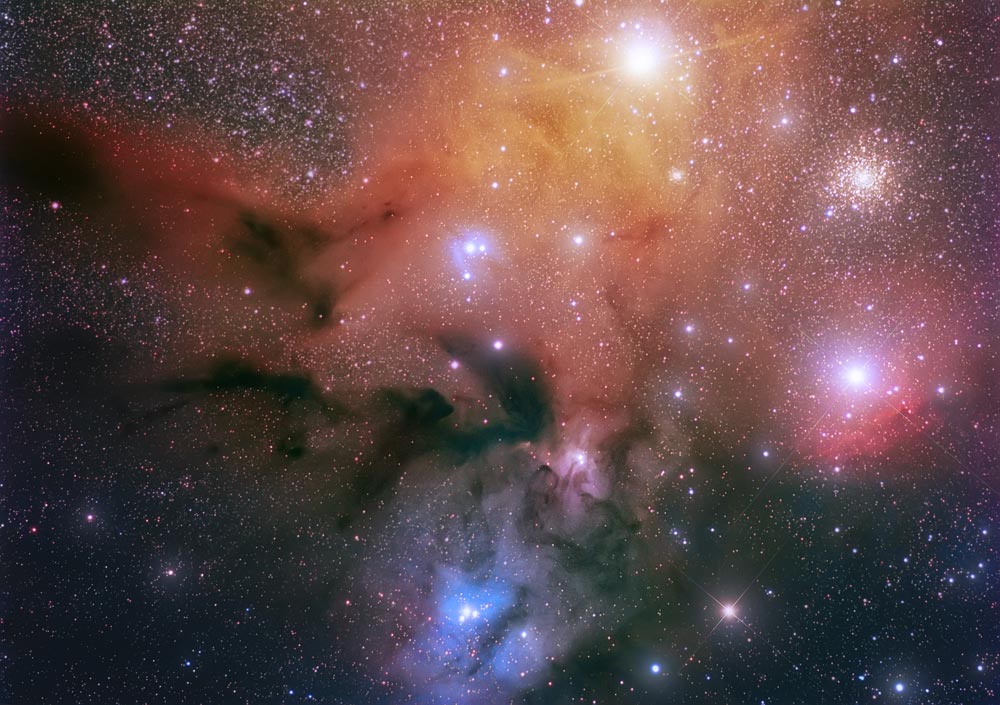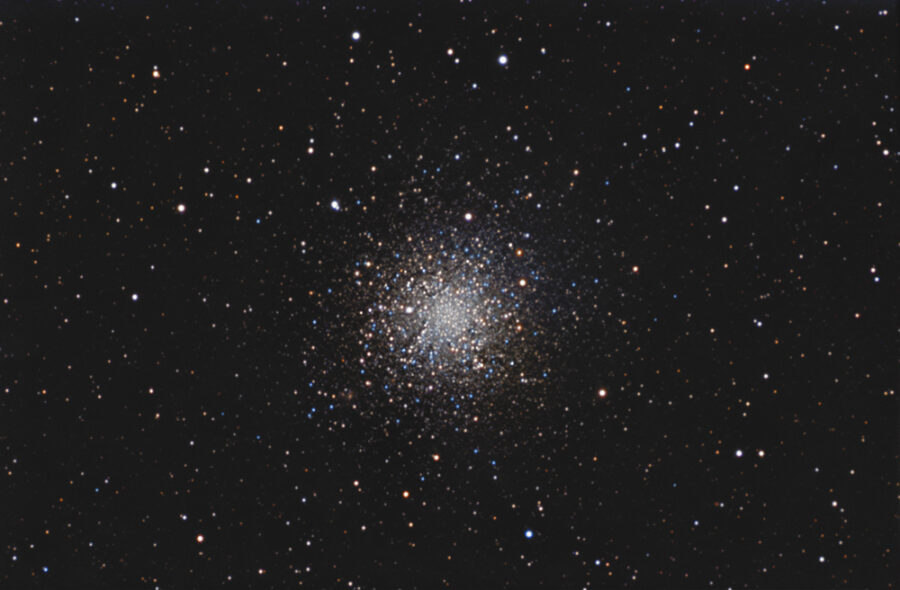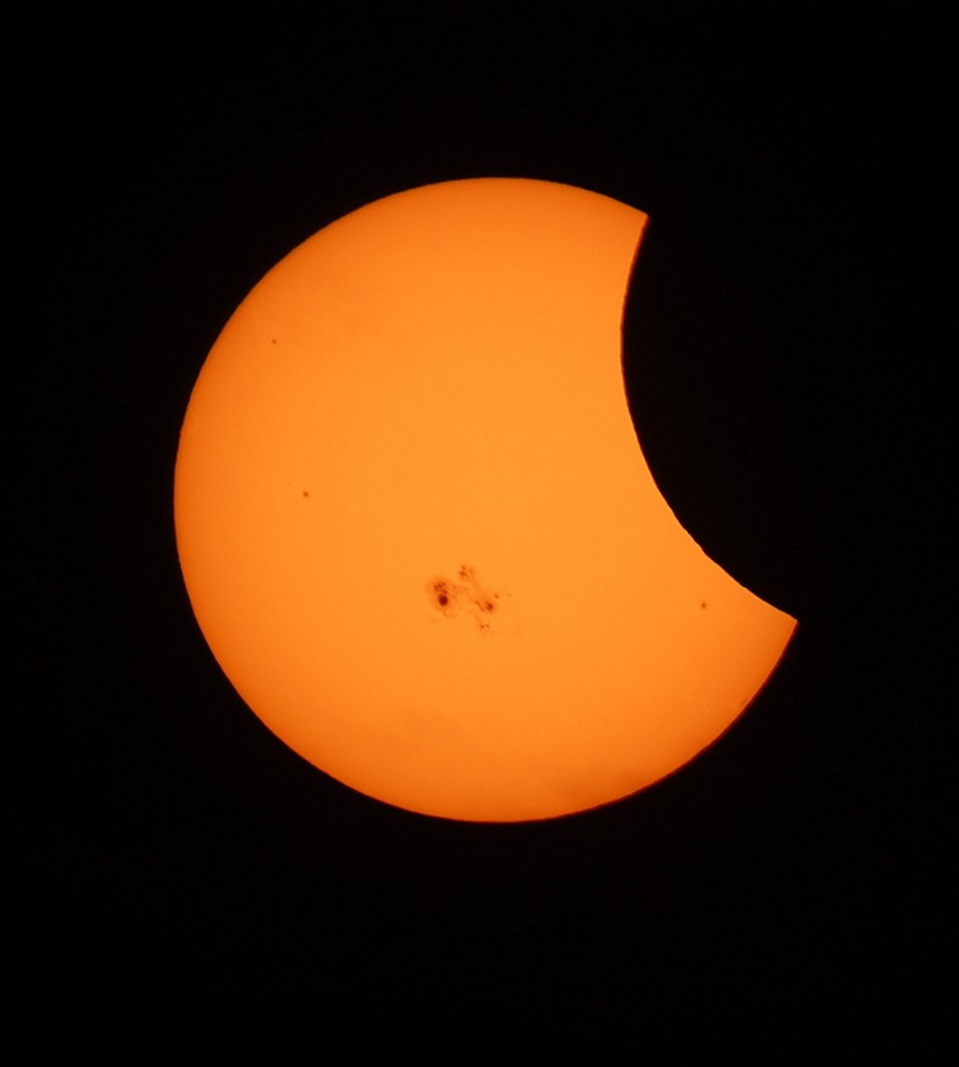Long, hot days mean sleepless nights for stargazers, but it’s worth it for the magic that happens under a dark, cool sky.

Ezequiel Etcheverry / S&T Online Photo Gallery
Not long ago, I was working with a client on a blog post about summer insomnia — specifically about how the longer daylight hours, warmer weather, and increased outdoor activities and socializing can have a negative impact on sleep.
Oh, you have no idea, I thought to myself as we worked on text about black-out curtains and sleep masks. Not that these aren’t excellent suggestions for getting better seasonal sleep, but summer stargazers often actively fight sleep so we can take advantage of the roughly 27 seconds between sunset and sunrise when the skies are finally dark enough to see anything.
Last year, in the interest of summer stargazing, I conducted a week-long experiment in multiphasic sleep. My idea was that sleeping a few hours here and a few hours there would allow me to stay up longer to peruse Ophiuchus, Sagittarius, and the environs, while still being semi-productive during the day. I figured if I could get enough cumulative sleep during each 24-hour cycle, maybe it wouldn’t matter that I wasn’t sleeping through the night. I could beat summer sleeplessness and still stargaze.
Boy, was I wrong.

Hunter Wilson / S&T Online Photo Gallery
I had it all planned out. I picked a week when I didn’t have any urgent deadlines, and I armed myself with sky charts and digital alarms. I made sure I could keep the bedroom cool with multiple fans — and ice packs, as needed — to encourage daytime rest. I chose a quality sleep mask but had to forgo black-out curtains because our oddly proportioned window defies finding even a ready-made curtain rod, much less specialty shades.
Of course, a three-hour afternoon nap wasn’t easy when I was daydreaming about midnight starry skies and hunting for the Hercules Globular Cluster (M13). But that was okay! Once I headed to bed after an extended stargazing session, my plan included letting myself sleep until I awoke naturally.
In the morning, however, I was reminded that the sky brightens before 5 o’clock here. And not only do I have east-facing windows without blackout curtains, I also have a hangry cat who will bite me awake if he’s not fed on time. I’d overlooked the fact that I seem to be genetically coded as an early riser; “sleeping in” rarely extends beyond 8 a.m., and even that can leave me feeling like a slug for the rest of the day.
That first stargazing session on a multiphasic sleep schedule was full of promise, but my grand experiment was doomed. After a handful of days, I was barely able to function. I was a lurching, grunting zombie during daylight hours, unable to think straight or communicate clearly, and I felt like a lightly inebriated sloth when I headed outside after dark.
Because I can’t leave well enough alone, I carried out another brief experiment this year. I set alarms for 3:45 a.m. on consecutive nights to go stand in the empty road in my pajamas with a pair of binoculars to take in the morning’s planetary parade. The first night was cloudy. But the second night, the coyotes were quiet and there were no marauding raccoons in sight. There was the thrum of trucks on the nearby highway, but otherwise the night was still, and it was mine. Time stopped and I forgot about the blistering heat of the day as I gazed up at Saturn, Jupiter, and Mars. I played with trying to find Uranus, and I spent some time with the Pleiades peeking out from behind the neighbor’s tree. This was the magic I was seeking.
And then, basking in starglow, I couldn’t for the life of me get back to sleep. I was dragging pretty hard by the following afternoon, and my sleep debt only accumulated from there.
You know what? I surrender. Summer insomnia has bested me.
I’m not giving up on summer stargazing, but I have scaled back my expectations. It made me sad at first to resign myself to not being able to take full advantage of seasonal sensations like the Butterfly Cluster, the Ring Nebula, and the red supergiant Antares — one of my favorites. I might try a little harder to get out to an informal star party, though pandemic precautions and accommodating my own needs can make this tricky.
Then I remembered I can catch Scorpius just as easily — perhaps more so — at 3 a.m. in late April, when the nights are at least a little longer and darker than July and August, and much cooler as well. Maybe next year I’ll conduct an experiment in becoming fully nocturnal, and then I’ll complain about spring insomnia, too.
 4
4









Comments
Rod
August 3, 2022 at 7:10 am
Very nice report 🙂 I posted my observations for 01-August evening here https://skyandtelescope.org/astronomy-news/observing-news/this-weeks-sky-at-a-glance-july-29-august-6-2/
Sometimes in July and August I view the summer milky way but use my smaller, 90-mm refractor telescope on an alta-azimuth tripod. The 10-inch Newtonian is a workout to setup when nights are some 75-80 F with high humidity 🙂 This morning just before 0500 EDT, the sky was very clear at my location with Mars up and Jupiter so bright. Tarus and Pleiades easy to see along with Capella and other winter stars rising.
You must be logged in to post a comment.
Kevan Hubbard
August 5, 2022 at 6:01 pm
I just stayed away all night a few nights back when I camped in a nearby International Dark Skies Park on a hill.Some incredible views of the Sagittarius star clouds and M24 and M8 where naked eye but apart from my eyes I was packing a pair of Helios 2x40 ultra wide field binoculars and a little Zeiss Mini Quick 5x10 monocular.The 2x40's where very impressive under dark skies.The problem is dew forming on the lenses late at night as when it's clear the temperature drops significantly between day and night.
You must be logged in to post a comment.
Ludovicus
August 5, 2022 at 9:24 pm
Rod! Good call on the small refractor - many a wonderful night can be had under the velvet of mid to late summer in comfort with a 80mm scope! So much fun! Like sailing the stars... And big binos - OMG!!! too much fun to be had with those as well - easy to setup in a snap and take in when done.
_________
Jen: great article thanks for posting! BTW, I have been doing star gazing for over 40 years, and what I find during these late summer nights is to "stagger" your longer night/early morning sessions. Alternating days (if possible, or do a long-short-long type of session) helps to mitigate the exhaustion. It also works to have a brief nap just before dinner - NO MORE than 2h or so. Any more than this and you get your rhythm going out of sync, as you found out!
No "cat naps" during outings either... that is a great way to lose the entire night unintentionally - believe me! 🙂
So, try the late afternoon (after work or before dinner) nap of ~2h - some folks only need 1h or so, some maybe 2-2.5h but NO more than that. Another thing that helps is to have lots of water, and some light fruit or mild sugar around late evening (10pm-midnight) - this may help your body extend itself into the early dawn.
Good luck! let us know if that helps!
Best,
Darren Hennig
Winnipeg Canada
You must be logged in to post a comment.
John Schnupp
August 7, 2022 at 3:00 pm
I have worked night shift for nearly 35 years, both 8hr 23:00-07:00 and 12hr 19:00-07:00 with a few years 15:00-23:00. I have tried all the tricks you mentioned, some with better success than others. Of of the best ways to create a truly dark room is to tape aluminum foil over the windows, the aluminum foil reflects the solar energy and can help with temperature too. After all these year, I think I have mostly eliminated any circadian rhythms in my life. It's certainly not for everyone and takes many years before your brain is finally "wired differently". There are a lot of health issues connected sleep deprivation and poor/non-circadian sleep cycles. I recall reading an article concerning sleep habits, I believe it was a feature article in S&T several years ago, it focused on biphasic sleep and how it was likely practiced by many of the 18th and 19th century astronomers.
You must be logged in to post a comment.
You must be logged in to post a comment.